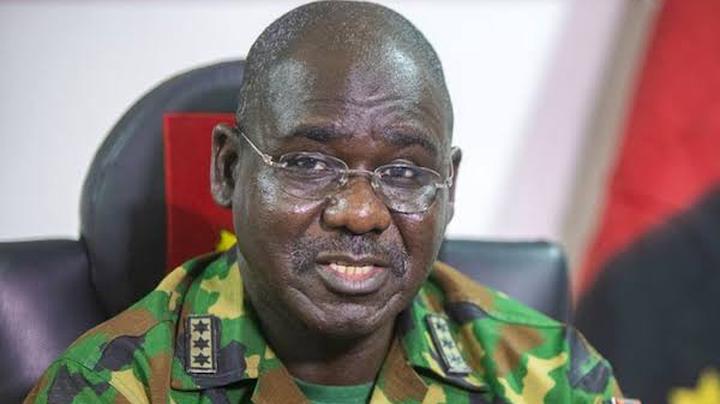According to a report by Punch Newspaper Friday, August 22, former Chief of Army Staff, Lt. Gen. Tukur Buratai (retd.), has called on the Federal Government to adopt a nationwide mobilisation strategy similar to the approach taken during the COVID-19 lockdown in order to combat insecurity in the country.
Speaking in an interview on Friday, Buratai stressed that the growing threats of terrorism, banditry, and kidnapping should not be left for the military alone to handle but treated as a collective national crisis.
He noted that insecurity has reached a level that requires the active participation of all Nigerians, with every sector playing a role in tackling the challenge.
Buratai explained that when Nigeria faced the COVID-19 pandemic, the government mobilised resources on a large scale, investing heavily in information campaigns, public awareness, and palliative measures.
The former army chief argued that the same level of urgency and coordination could be applied in dealing with insecurity.
According to him, the lockdown during the pandemic showed that the country was capable of organising itself under pressing circumstances, and similar measures could be used to concentrate attention on eliminating terrorist and criminal networks.
In his remarks, Buratai emphasised that security challenges cannot be solved by the armed forces alone, no matter how well-equipped or trained they are.
He maintained that citizens must also be mobilised through awareness, intelligence sharing, and community involvement.
He suggested that national mobilisation should include both governmental and non-governmental actors, working hand in hand to reduce the space in which criminal groups operate.
Such efforts, he said, could help in creating a united front that makes it more difficult for terrorists and bandits to thrive.
The former army chief also stressed the importance of government investment in communication and education as part of this mobilisation strategy.
He explained that during the COVID-19 crisis, the use of advertisements, radio campaigns, and other forms of mass communication played a key role in spreading preventive messages and ensuring compliance.
Similarly, he proposed that government should sponsor intensive campaigns that will sensitise citizens about their role in national security, encouraging communities to remain vigilant and proactive in sharing intelligence with security agencies.
Buratai further pointed out that terrorism and banditry have become entrenched in some parts of the country because of limited community involvement in security measures.
He argued that if every Nigerian understood the fight against insecurity as a shared responsibility, the country would have a better chance of weakening the grip of criminal groups.
He therefore called for policies that will empower local communities, religious leaders, and traditional institutions to take part in the broader fight against crime and violence.
His comments come at a time when insecurity remains a pressing issue in several regions of Nigeria.
While the military has recorded successes in counter-terrorism and anti-banditry operations, recurring attacks continue to raise concerns among citizens.
Buratai’s suggestion reflects the growing call for a more inclusive approach to national security, one that recognises the need for cooperation between the government, security agencies, and the public
Whether the government will consider a mobilisation strategy similar to the COVID-19 response remains to be seen, but his remarks highlight the urgency of adopting fresh strategies in tackling insecurity.
He said: The whole nation was locked down because of COVID-19. We can do the same thing. We can lock down this country to make sure that everybody concentrates and deals with this cankerworm of so-called terrorists and bandits.
Find Verified News At Your fingertips Click The Button Below

